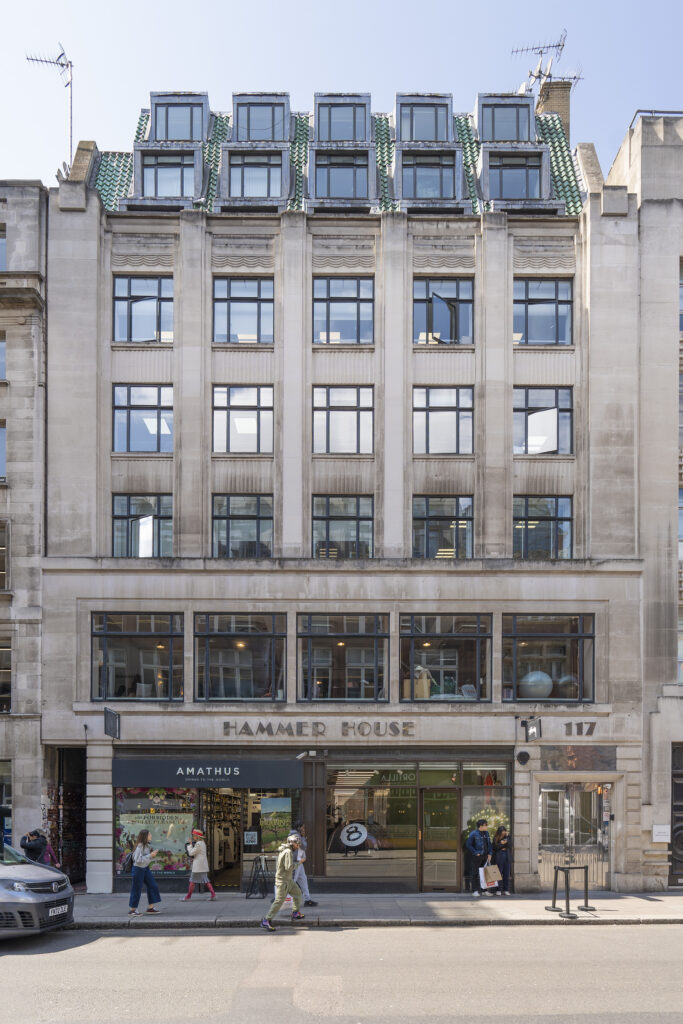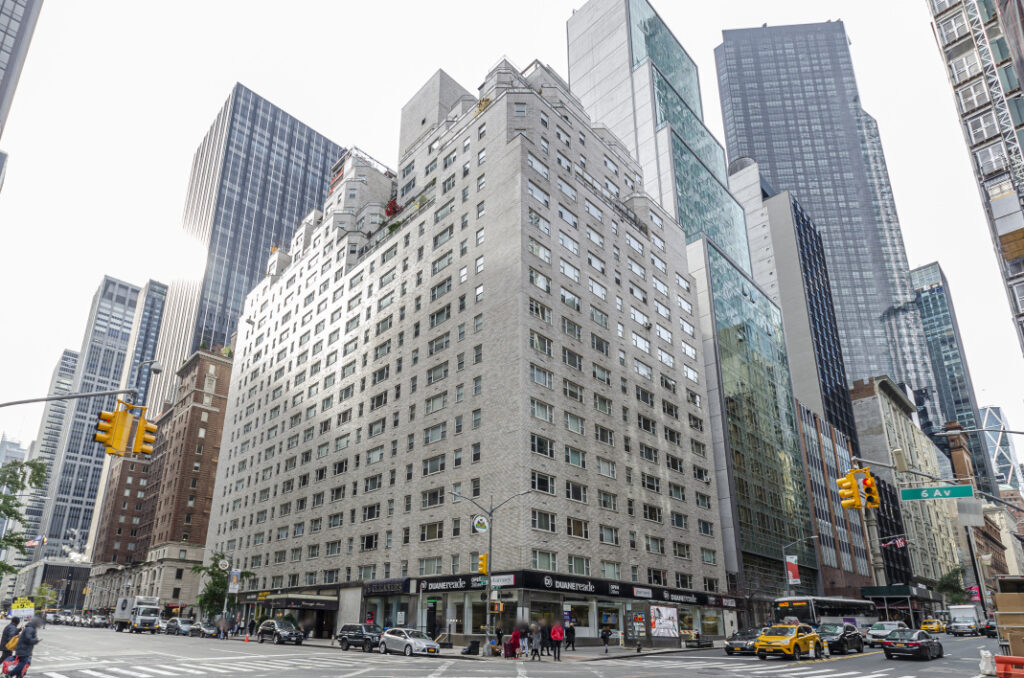June Market Update 2025
This month we discuss the US market rally and the Israel-Iran conflict, the latest developments in US trade policy, and NATO’s generational commitment to defence.
After a busy few months we’re thrilled to share an exciting update on our recent deal completions across London and New York.
These transactions closed by BRE team highlight the continued demand for prime real estate investments in Central London and illustrate the attractive opportunities / pricing available in the current market.
Click the buttons below to see further details.
If you have any questions please do not hesitate to reach out to us at bre@bedrockgroup.com.
Background
In February 2024, BRE acquired Hammer House, a prominent trophy asset in Soho on behalf of a single family.
Strategy
Deal Overview
Location: Wardour Street, London
Purchased: February 2024
Deal Type: Single Family
Purchase Price: £18,750,000 (£1,192/ft2)
Size (NIA): 15,735 ft2
Rent (£/ft2): £1,040,000 (£66.11 /ft2)
Triple Net Yield: 5.15%
Reversionary Yield on Cost: 6.25%

Background
In January 2024, BRE acquired an office building in London’s most premier market on behalf of a single family.
Strategy
Deal Overview
Location: 34 North Row
Purchased: January 2024
Deal Type: Single Family
Purchase Price: £10,300,000
Size (NIA): 5,790 ft2
Capital Value (£/ft2): £1,778 £/ft2
Passing Rent (£): £207,000 (£35.75/ft2)

Background
In January 2024, BRE acquired a three-building asset in London’s most premier market
Strategy
Deal Overview
Location: 31-33 North Row
Purchased: January 2024
Deal Type: Direct
Purchase Price: £6,187,500
Size (NIA): 6,442 ft2
Capital Value (£/ft2): £961 £/ft2

Background
In October 2023, BRE co-invested into a high yielding Mezzanine loan secured against a ground lease on a residential building on ‘Billionaire’s Row’
Strategy
Deal Overview
Location: 100 West 57th Street, New York
Invested: October 2023
Deal Type: Co-Invest
Loan Size: $90,000,000
Asset Value: $300,000,000
Interest Rate: 18.00% per annum
Loan Length: 36 months

Important Legal Information
This article has been approved and issued by Bedrock SA licensed under Swiss Law, authorised by the Swiss Financial Market Supervisory Authority (FINMA) and supervised by the AOOS; Bedrock Monaco SAM authorised and regulated by the Commission for the Control of Financial Activities (“CCAF”); and Bedrock Asset Management (UK) Ltd. authorised and regulated by the Financial Conduct Authority in the UK (jointly, hereafter, “Bedrock”).
The information and opinions contained in this article are provided for background information and discussion purposes only and do not purport to be full or complete. No information in this article should be construed as providing financial, investment or other professional advice. This information contained herein is for the sole use of its intended recipient and may not be copied or otherwise distributed or published without Bedrock’s express consent. No reliance may be placed for any purpose on the information contained in this article or their accuracy or completeness. Information included in this article is intended for those investors who meet the Financial Conduct Authority definition of Professional Client or Eligible Counterparty or for those investors who meet the Swiss Federal Act on Financial Services Act (FinSA) of a Professional Client.
Investment risks
The value of all investments and the income derived therefrom can fluctuate due to market movements and you may not get back the amount originally invested. In the case of overseas investments, values may vary as a result of changes in currency exchange rates. This may be due, in part, to exchange rate fluctuations in investments that have an exposure to currencies other than the base currency of the portfolio. Investments in commercial buildings may prove illiquid in terms of the time taken to sell such assets. Past performance is no guide to or guarantee of future performance.
Alternative investments risks in general
As a professional client, you should be aware that investing in alternative investments can carry significant risks. Alternative investments are investments that do not fall under the traditional categories of stocks, bonds, and cash. Examples of alternative investments include hedge funds, private equity, venture capital, and real estate.
Under the FCA financial promotions framework, alternative investments can only be promoted to professional clients, such as yourself. This is because professional clients are deemed to have the necessary knowledge and experience to understand the risks involved in these investments.
However, even with this level of expertise, it is important to be aware of the risks involved in alternative investments. Some of the risks include:
•Illiquidity: Alternative investments can be difficult to sell quickly, which means that you may not be able to access your money when you need it.
•Lack of transparency: Alternative investments are often less transparent than traditional investments, which means that it can be difficult to get a clear picture of the underlying assets and their performance.
•Complexity: Alternative investments can be complex, with unique features and structures that may be difficult to understand.
•Concentration risk: Alternative investments often require a large minimum investment, which means that you may end up with a concentrated portfolio and a high degree of exposure to a single investment.
•Higher fees: Alternative investments often come with higher fees than traditional investments, which can eat into your returns.
It is important to carefully consider these risks before investing in alternative investments. You should also ensure that you understand the terms of the investment, including any fees and charges, before committing your money.
If you have any questions or concerns about investing in alternative investments, you should seek the advice of a professional financial advisor who is qualified to advise on these types of investments.
Risks related to real estate investments
As a professional client considering investing in alternative investments in real estate, there are specific risks you should be aware of. These risks include:
•Market risk: Real estate investments can be affected by changes in the property market, such as changes in interest rates, supply and demand, and economic conditions. These factors can impact the value of the property and the potential return on your investment.
•Location risk: The value of a property can be heavily influenced by its location. Investing in a property in a less desirable location can result in lower rental income and capital appreciation potential.
•Management risk: Managing a real estate investment can be complex and time-consuming. The performance of the investment is heavily dependent on the skills and experience of the property manager or management team.
•Liquidity risk: Real estate investments can be illiquid, which means that it can be difficult to sell your investment quickly. This can limit your ability to access your money when you need it.
•Construction risk: Real estate investments that involve new construction or renovations can be subject to construction risk. This includes the risk of cost overruns, delays, and defects in the construction process.
•Financing risk: Real estate investments often involve significant levels of debt financing, which can increase the risk of default and foreclosure in the event of market downturns or other adverse events.
If you are considering investing in real estate, you should carefully evaluate these risks, conduct thorough due diligence, and be prepared for longer investment horizons and potential illiquidity. Consulting with a qualified financial advisor or private market expert is essential to make informed investment decisions.
Copyright and other rights
The copyright, trademarks and all similar rights of this website and the contents, including all information, graphics, code, text and design, are owned by Bedrock.